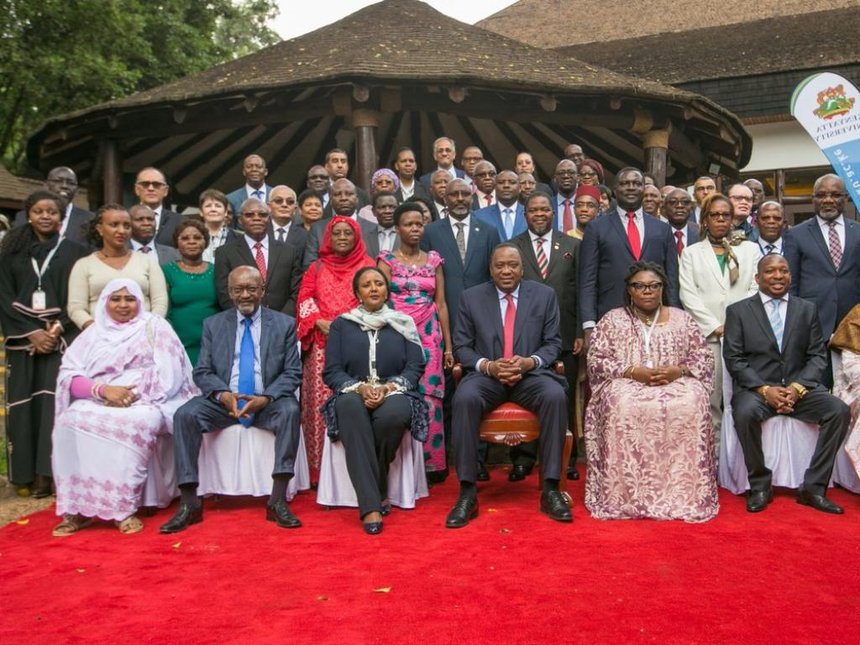Nairobi, Kenya: 25- 26 April 2018: “Agenda 2063 goals and the 21st century demands are placing Education provisions in Africa under tremendous pressure to accommodate the increasing numbers of students seeking access to education at all levels” said the African Union, Commissioner for Human Recourses, Science and Technology(HRST), H.E Prof Sarah Anyang Agbor at the Pan African High-Level Conference on Education- PACE 2018 opening ceremony yesterday in Kenya.
The African Union commissioner called on all the stakeholders to build education, training and innovative ecosystems that have local relevance, global competitiveness and mutual recognition to enable us to equip the African citizenry with the necessary knowledge and skills needed to build the Africa we want as identified in Africa’s blue print for development Agenda 2063.
“Quality education is imperative if Africa has to attain this vision, generate home-grown solutions to African challenges and participate fully in, and influence the global knowledge economy” she said.
In conclusion, the African Union Commissioner noted that the conference provided a great opportunity for stakeholders to align both global and continental goals and priorities which she deemed essential to education development. She also called for the speedy implementation and domestication of the Continental Education Strategy of Africa (CESA) 2016- 2015 and Sustainable Development Goal 4 (SDG4).
PACE 2018 provides a platform for key stakeholder in the education sector to share progress, success stories, challenges and lessons learned by Member States thus far and to contribute to the ongoing discussions on the 2063 African Union vision The Africa We Want.
In his opening address to the delegates, the Assistant Director General for Education of the United Nations Educational, Scientific and Cultural Organization (UNESCO), Mr. Firmin Matoko pointed out that, by 2030 Africa will have the largest workforce as 200 million people in Africa are aged between 15 to 24. This making Africa the continent with the largest number of young population and stressed the need to leverage the demographic dividend in Africa.
“We need to help Africa tap into scientific inventions and discoveries that are happening around the world, and step up investments in scientific research so as to enable Africans to be producers of knowledge rather than consumers by embracing the advancement in technology and equipping the youth with relevant knowledge and skills the 21st century demands”, he said in his conclusion.
The Cabinet Secretary, Ministry of Education, Kenya, Amb. Amina Mohamed, in her opening remarks, emphasized the need to invest heavily in education as it is paramount to our continent’s future. She mentioned how Kenya has realigned its education system to include mechanisms for adequate training so as to equip the youth with relevant skills and knowledge needed for optimal performance.
In her concluding remarks, the Cabinet Secretary, also noted that in order to achieve the Sustainable Development Goals (SDGs) and the Continental Strategy for Education (CESA) in Africa, we must keep pace with the rest of the world.
The two-day technical meeting attended by senior country representatives and other education stakeholders following discussions, and formulated recommendations dubbed ‘the Draft Nairobi Pan African Declaration on Education’ that will be presented to the ministers of education at a round table on 27th April 2018. This will be followed by a press conference to announce what has been adopted at the Pan African High-Level Conference on Education- PACE 2018.

